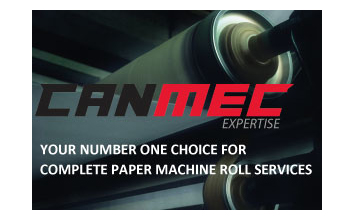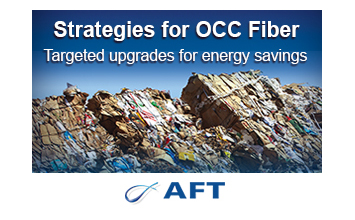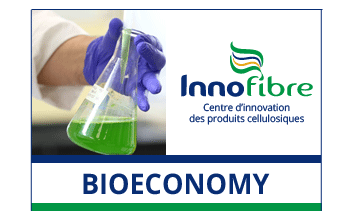At Stora Enso, circularity is a pillar of our innovation activities. We not only design packaging materials with recyclability in mind, but also focus on how we can better sort and recycle these materials, and how we can use recycled fibers in more end uses.
Our rFiber Platform expands the possibilities of fiber recycling, and paves the way for developing the recycled fiber-based materials of tomorrow. Are you familiar with the “cascading principle”? This refers to the efficient use of raw materials, like wood fibers, and it establishes an order of use according to where these raw materials deliver the most value. In a cascading system, fibers are used to produce important materials such as food packaging, and reused or recycled until it is no longer possible to use them in such demanding applications. In the next loop, the fibers are then used in less demanding applications, like newsprint or hygiene, and finally they are decomposed or used in energy production. Through this recycling principle, fibers maintain their value as long as possible and serve as a significant raw material for a variety of packaging applications.
Through our rFiber Platform, we work guided by the cascading principle in solving key fiber-based packaging recycling challenges including raw material availability, pulp processing, product safety, and board concepts. We conduct the work in our research centers, and we work collaboratively with other value chain players. The goal of this program is to develop new applications for recycled fibers, and to do so, we need to enhance solutions for collecting, sorting, cleaning, and improving the performance of the material. Each of these areas adds to the value of fiber, both economically and environmentally, and by doing so we find ways to keep fibers in the loop for longer.
Recycled fiber is an important raw material that can help increase applicability of fiber-based solutions in the market and improve material availability. Commenting on our view on recycled fibers, Phillip Hanefeld, SVP Innovation and Research & Development said, “At Stora Enso, our goal is to inject as many fibers as possible back into the loop. For us, every fiber counts. We advocate for being frugal about how much new fiber we put in. And we are doing a great deal of work to minimize the loss of fiber in these circular processes.”
Working towards a recycled fiber-based future collaboratively
To help meet our goals for recycled fiber, we need to rely on more than our own competencies; maximizing fiber’s circularity requires collaborating and sharing ideas with external partners. This is especially the case when it comes to collecting and sorting packaging in the recycling process, and it is critical to build these relationships to meet future regulations concerning increased collection rates and higher-quality recycling practices.
Stora Enso is a recycler at scale with decades of experience in treating and processing recycled fibers. We are using approximately 1.6 million tonnes for usage in commercial applications, meaning recycled fibers feature in our paperboard product portfolio on a large industrial scale.
Today, we have combined beverage carton and corrugated packaging recycling capabilities at our Varkaus, Finland site. We also recently began operating a new, technology-leading beverage carton recycling line at our Ostroleka, Poland unit -- the result of a collaboration with Tetra Pak. With these lines, we can recycle barrier-coating materials and capture valuable fiber. We’re also exploring through our Recycled Materials Challenge (ReMatCh) program in collaboration with partners along the value chain, like Borealis Polymers, how we can better apply the cascading principle to polymers, in particular those found in barrier layers.
To learn more about how fiber recycling works in practice at Stora Enso, read Phillip’s recent blog post.
Part of the global bioeconomy, Stora Enso is a leading provider of renewable products in packaging, biomaterials and wooden construction, and one of the largest private forest owners in the world. We believe that everything that is made from fossil-based materials today can be made from a tree tomorrow. Stora Enso has approximately 20,000 employees and our sales in 2023 were EUR 9.4 billion. Stora Enso shares are listed on Nasdaq Helsinki Oy (STEAV, STERV) and Nasdaq Stockholm AB (STE A, STE R). In addition, the shares are traded in the USA as ADRs and Ordinary Shares (SEOAY, SEOFF, SEOJF).
Source: Stora Enso













